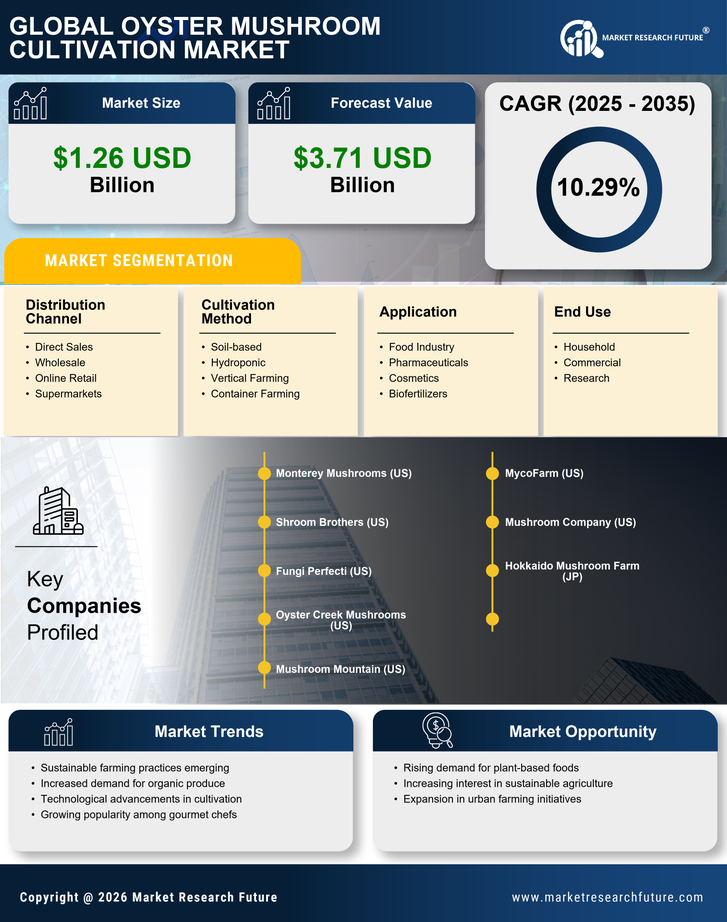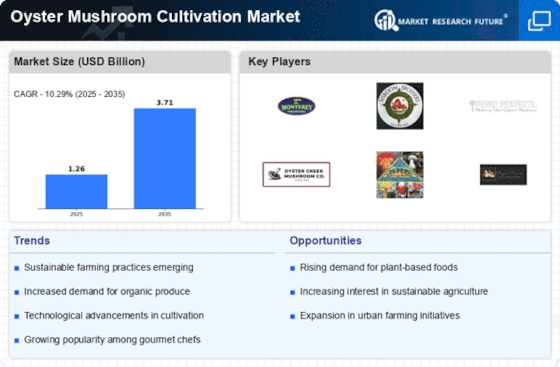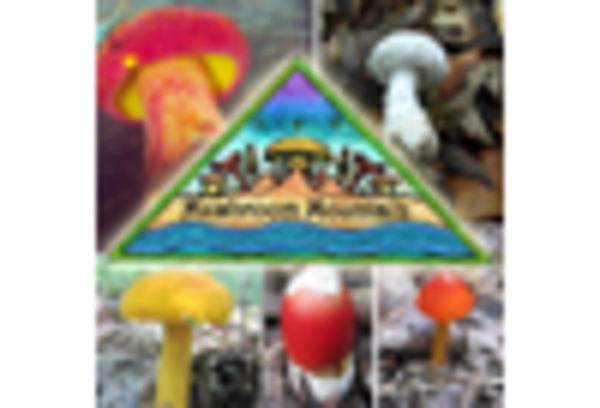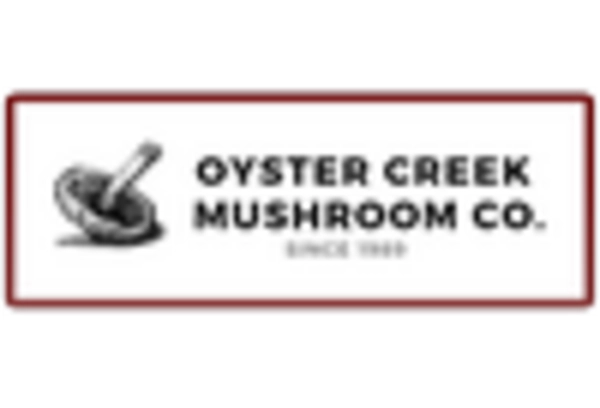Sustainable Agricultural Practices
Sustainability is becoming a pivotal factor in the Oyster Mushroom Cultivation Market. As environmental concerns rise, consumers and producers alike are seeking sustainable agricultural practices. Oyster mushrooms can be cultivated on agricultural waste, such as straw and sawdust, which not only reduces waste but also minimizes the carbon footprint associated with traditional farming methods. This eco-friendly approach appeals to environmentally conscious consumers, thereby driving demand. Furthermore, the Oyster Mushroom Cultivation Market benefits from government initiatives promoting sustainable farming practices. These initiatives often include financial incentives for farmers adopting eco-friendly methods, which can lead to increased production capacity and market growth. The integration of sustainability into cultivation practices is likely to enhance the market's appeal and foster long-term growth.
Health Benefits of Oyster Mushrooms
The Oyster Mushroom Cultivation Market is experiencing a surge in demand due to the increasing awareness of health benefits associated with oyster mushrooms. These mushrooms are rich in essential nutrients, including vitamins, minerals, and antioxidants, which contribute to overall health. Studies indicate that oyster mushrooms may help in lowering cholesterol levels and boosting the immune system. As consumers become more health-conscious, the demand for organic and nutritious food options rises, leading to a greater interest in oyster mushrooms. This trend is reflected in market data, which shows a steady increase in sales of oyster mushrooms, particularly in health food stores and organic markets. The growing preference for plant-based diets further propels the Oyster Mushroom Cultivation Market, as these mushrooms serve as a versatile ingredient in various culinary applications.
Rising Demand for Plant-Based Foods
The increasing demand for plant-based foods is significantly influencing the Oyster Mushroom Cultivation Market. As more consumers shift towards vegetarian and vegan diets, the need for alternative protein sources has escalated. Oyster mushrooms, known for their meaty texture and umami flavor, are becoming a popular choice among consumers seeking plant-based options. Market Research Future indicates that the plant-based food sector is expanding rapidly, with oyster mushrooms being featured prominently in various culinary applications, from meat substitutes to gourmet dishes. This trend is further supported by the growing number of restaurants and food brands incorporating oyster mushrooms into their menus. The rising popularity of plant-based diets is expected to continue driving growth in the Oyster Mushroom Cultivation Market, as consumers increasingly seek nutritious and sustainable food choices.
Increased Investment in Mushroom Farming
Investment in mushroom farming is on the rise, positively impacting the Oyster Mushroom Cultivation Market. As the demand for oyster mushrooms grows, investors are recognizing the potential profitability of mushroom cultivation. This influx of capital is facilitating the expansion of existing farms and the establishment of new ones, thereby increasing production capacity. Market data reveals that regions with favorable climatic conditions for mushroom cultivation are attracting significant investment, leading to enhanced infrastructure and technology adoption. Additionally, government support in the form of grants and subsidies for mushroom farming is further encouraging investment. This trend of increased investment is likely to bolster the Oyster Mushroom Cultivation Market, ensuring a steady supply of high-quality mushrooms to meet consumer demand.
Technological Advancements in Cultivation Techniques
The Oyster Mushroom Cultivation Market is witnessing a transformation due to technological advancements in cultivation techniques. Innovations such as automated growing systems, climate control technologies, and advanced substrate preparation methods are enhancing productivity and efficiency. These technologies enable producers to optimize growing conditions, resulting in higher yields and improved quality of mushrooms. Market data suggests that the adoption of these technologies is on the rise, with many cultivators investing in modern equipment to stay competitive. Additionally, the use of data analytics and IoT in monitoring growth conditions is becoming more prevalent, allowing for precise control over the cultivation process. As these technologies continue to evolve, they are likely to play a crucial role in shaping the future of the Oyster Mushroom Cultivation Market.


















